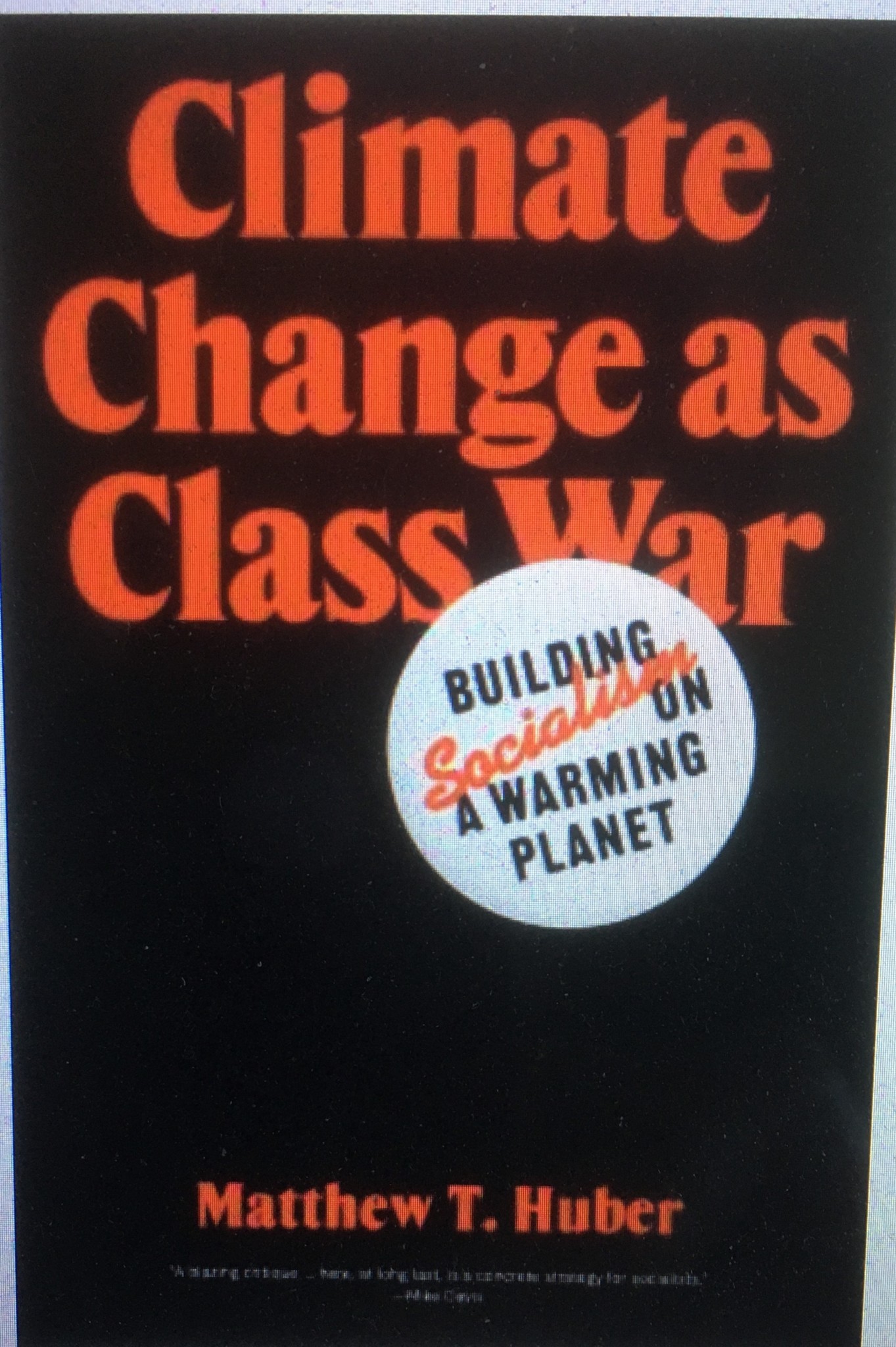In his 2022 book, Climate Change as Class War, Matthew Huber, professor of geography at Syracuse University, takes a revised Marxist/socialist perspective on climate justice, arguing that the scientific/technical and moral arguments of the professional class (including the radicals) do not address the unmet material needs of the working class, which comprises the majority of the US’s and the world’s populations. He agrees with other climate change analysts that we, as humans and as climate activists, must also address our ecological needs, such as the warming of our planet causing massive ice melts, ocean acidification, extreme weather events, drought, rapid extinction of many species, etc.
But to build a mass movement Huber says activists must face the fact that climate justice requires a struggle for power with the moneyed sources (i.e., owners) of production, the capitalists. He asserts we will never build a mass movement unless we identify the sectors of the working class that can lead a transition to renewable energy. His arguments challenge the touting of degrowth as the only path to addressing the crisis. While not denying the immense challenge of the path he proposes, his recognition of the need to seize political power and to build a mass movement to get there is compelling, maybe even undeniable.
The appeal of this book to me is largely his positing a path to building a mass movement, which we as XRPDX and other climate organizations activists have thus far failed to do. Except for some Indigenous peoples and some who merely subsist in developing countries, our movement is mostly peopled by more formally educated middle class folks whose material needs are met. Our arguments for addressing climate change are moral, scientific, and technical, and mostly stop short of acknowledging the unmet material needs of the majority of the global population.
I am very attracted to the notion of degrowth, as it is obvious to anyone who has bothered to notice that we have gone well beyond the earth’s ability to support the human population and its poisoning, extraction, and degradation of our only home.
But, as Huber points out, vast numbers of people still do not have adequate water, food, shelter, health care, or education. They need development, or economic growth. We activists in overdeveloped countries need to ally ourselves with those in our own countries who are still in material need to devise strategies for building our collective power to challenge the power of the owning class.
Huber’s suggestion is to look to the parts of our working class who still have some unmet material needs which cause them to fear any move toward degrowth, and who occupy roles in our energy industry that make them indispensable to that industry’s capitalist owners. He argues for organizing within unions, specifically those relatively strong unions in electric utilities, to fight for power and material gain, along with renewable energy, through labor actions, negotiating, and electoral and legislative reform.
As one who has little or no faith in our electoral and legislative system, I choke on the suggestion that we appeal to the politicians whose vested interest in the system has rarely allowed them to do what is necessary for our collective welfare. But, I agree with Huber, and many others, that we need masses of people to join us in the fight for climate justice and our own survival.
I got this book, like most of the books I read, from the Multnomah Library. Powell’s and Broadway Books carry it. I’m constantly looking for more effective analyses and strategies for our work.

